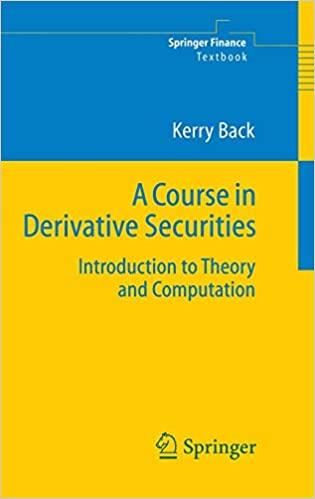Question
solve following task 17. A company is planning to issue new equity in order to raise capital. The company has a beta of 1.5. Returns
solve following task
17. A company is planning to issue new equity in order to raise capital. The company has a beta of 1.5. Returns on the market are expected to be 14%, and the market risk premium is expected to be 11%. If flotation costs sum to 4%, what is the cost of common equity? (Round to the nearest hundredth.)___________
18. A company has 50,000 bonds outstanding with a $1,000 face value that are currently priced at 92% of face value. These bonds have 10 years until maturity and pay a 9% annual coupon rate. If the company has a marginal tax rate that is 34%, what is the companys after-tax cost of debt? (Round to the nearest hundredth.)________
19. A firm just announced a new preferred stock issue. The preferred dividend, which will be paid in perpetuity, is expected to be $10. The price per share of preferred stock is expected to be $94. Given this information, what is the cost of preferred equity as a percent? (Round to the nearest hundredth.)_____________
20. A company is planning to issue a new $1,000 face-value bond that will mature in 20 years. The price of the bond is expected to be equal to the face value, and the annual coupon rate is 7.5%. Flotation costs are $12 per bond. How much higher is the before-tax cost of debt when accounting for flotation costs? (Round to the nearest hundredth.)_________
21. Suppose a firm is looking to calculate the cost of common equity using the capital asset pricing model. The company has a beta of 1.6. Market returns are expected to be 12%, and the risk-free rate is 3.5%. Given this information, what is the cost of common equity as a percent? (Round to the nearest hundredth.)___________
22. A company doesnt carry any debt on its balance sheet. The company is completely financed with common equity. The company has a beta of 1.5. Expected returns on the market are 15%, and the risk-free rate is 3.5%. Given this information, what is the WACC? (Round to the nearest hundredth.)__________
Step by Step Solution
There are 3 Steps involved in it
Step: 1

Get Instant Access to Expert-Tailored Solutions
See step-by-step solutions with expert insights and AI powered tools for academic success
Step: 2

Step: 3

Ace Your Homework with AI
Get the answers you need in no time with our AI-driven, step-by-step assistance
Get Started


